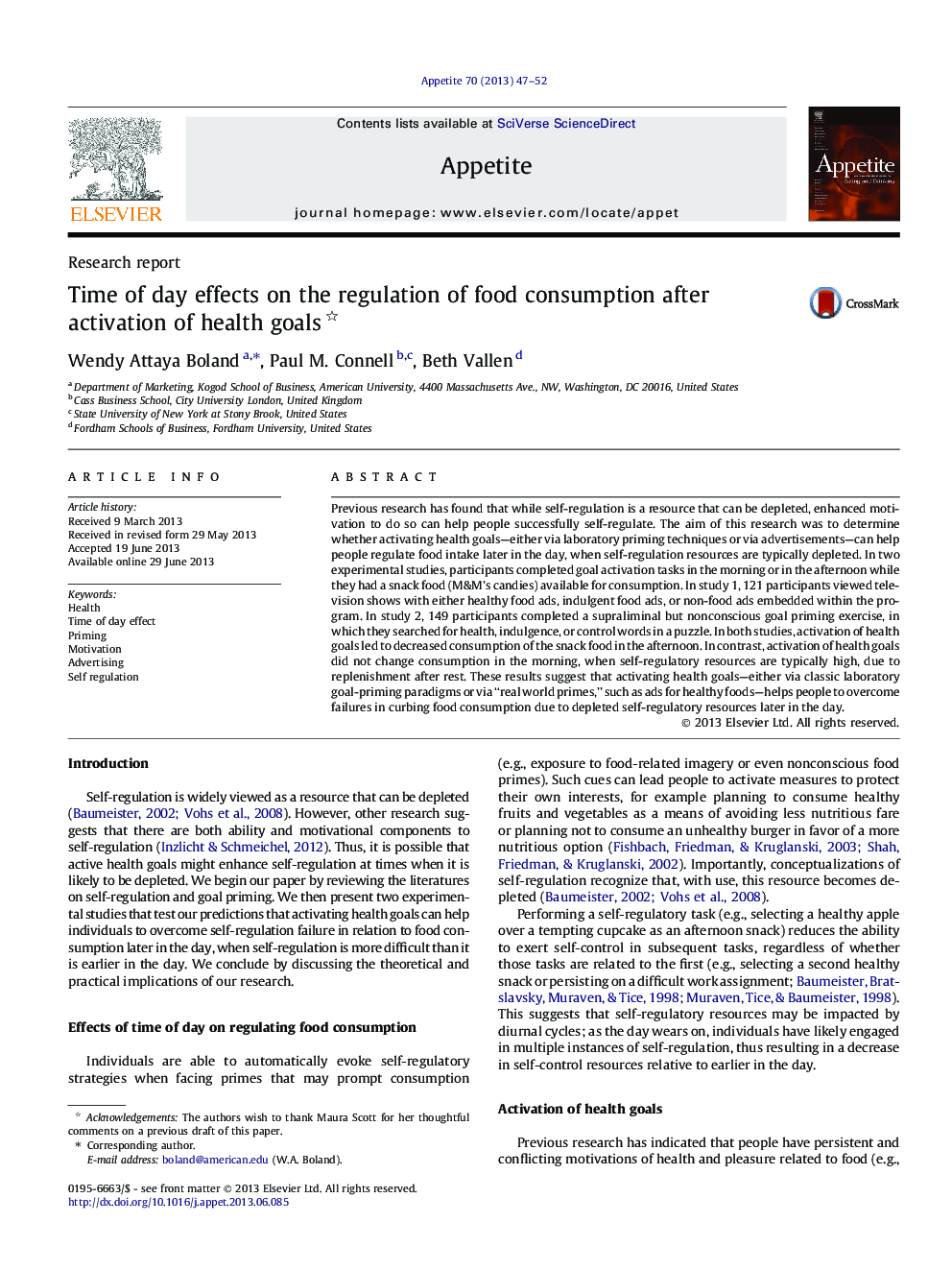| Article ID | Journal | Published Year | Pages | File Type |
|---|---|---|---|---|
| 939621 | Appetite | 2013 | 6 Pages |
•Self-regulation tends to be depleted later in the day.•However, other research suggests a motivational component to self-regulation.•Activating health goals in the afternoon resulted in decreased food consumption.•In study 1, a “real-life” prime decreased snack consumption in the afternoon.•In study 2, a lab priming technique decreased snack consumption in the afternoon.
Previous research has found that while self-regulation is a resource that can be depleted, enhanced motivation to do so can help people successfully self-regulate. The aim of this research was to determine whether activating health goals—either via laboratory priming techniques or via advertisements—can help people regulate food intake later in the day, when self-regulation resources are typically depleted. In two experimental studies, participants completed goal activation tasks in the morning or in the afternoon while they had a snack food (M&M’s candies) available for consumption. In study 1, 121 participants viewed television shows with either healthy food ads, indulgent food ads, or non-food ads embedded within the program. In study 2, 149 participants completed a supraliminal but nonconscious goal priming exercise, in which they searched for health, indulgence, or control words in a puzzle. In both studies, activation of health goals led to decreased consumption of the snack food in the afternoon. In contrast, activation of health goals did not change consumption in the morning, when self-regulatory resources are typically high, due to replenishment after rest. These results suggest that activating health goals—either via classic laboratory goal-priming paradigms or via “real world primes,” such as ads for healthy foods—helps people to overcome failures in curbing food consumption due to depleted self-regulatory resources later in the day.
